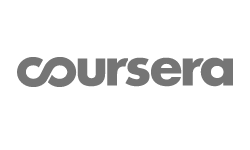Among the techniques for recommendation, collaborative filtering (CF) is commonly recognized to be the most effective for implementing recommender systems. Until now, CF has been popularly studied and adopted in both academic and real-world applicatio...
http://chineseinput.net/에서 pinyin(병음)방식으로 중국어를 변환할 수 있습니다.
변환된 중국어를 복사하여 사용하시면 됩니다.
- 中文 을 입력하시려면 zhongwen을 입력하시고 space를누르시면됩니다.
- 北京 을 입력하시려면 beijing을 입력하시고 space를 누르시면 됩니다.
https://www.riss.kr/link?id=A102086647
- 저자
- 발행기관
- 학술지명
- 권호사항
-
발행연도
2016
-
작성언어
Korean
- 주제어
-
KDC
003
-
등재정보
KCI등재
-
자료형태
학술저널
- 발행기관 URL
-
수록면
113-127(15쪽)
-
KCI 피인용횟수
8
- DOI식별코드
- 제공처
-
0
상세조회 -
0
다운로드
부가정보
다국어 초록 (Multilingual Abstract)
Among the techniques for recommendation, collaborative filtering (CF) is commonly recognized to be the most effective for implementing recommender systems. Until now, CF has been popularly studied and adopted in both academic and real-world applications. The basic idea of CF is to create recommendation results by finding correlations between users of a recommendation system. CF system compares users based on how similar they are, and recommend products to users by using other like-minded people’s results of evaluation for each product. Thus, it is very important to compute evaluation similarities among users in CF because the recommendation quality depends on it. Typical CF uses user’s explicit numeric ratings of items (i.e. quantitative information) when computing the similarities among users in CF. In other words, user’s numeric ratings have been a sole source of user preference information in traditional CF. However, user ratings are unable to fully reflect user’s actual preferences from time to time. According to several studies, users may more actively accommodate recommendation of reliable others when purchasing goods. Thus, trust relationship can be regarded as the informative source for identifying user’s preference with accuracy.
Under this background, we propose a new hybrid recommender system that fuses CF and social network analysis (SNA). The proposed system adopts the recommendation algorithm that additionally reflect the result analyzed by SNA. In detail, our proposed system is based on conventional memory-based CF, but it is designed to use both user’s numeric ratings and trust relationship information between users when calculating user similarities. For this, our system creates and uses not only user-item rating matrix, but also user-to-user trust network. As the methods for calculating user similarity between users, we proposed two alternatives – one is algorithm calculating the degree of similarity between users by utilizing in-degree and out-degree centrality, which are the indices representing the central location in the social network. We named these approaches as ‘Trust CF – All’ and ‘Trust CF – Conditional’. The other alternative is the algorithm reflecting a neighbor’s score higher when a target user trusts the neighbor directly or indirectly. The direct or indirect trust relationship can be identified by searching trust network of users. In this study, we call this approach ‘Trust CF – Search’.
To validate the applicability of the proposed system, we used experimental data provided by LibRec that crawled from the entire FilmTrust website. It consists of ratings of movies and trust relationship network indicating who to trust between users. The experimental system was implemented using Microsoft Visual Basic for Applications (VBA) and UCINET 6. To examine the effectiveness of the proposed system, we compared the performance of our proposed method with one of conventional CF system. The performances of recommender system were evaluated by using average MAE (mean absolute error). The analysis results confirmed that in case of applying without conditions the in-degree centrality index of trusted network of users(i.e. Trust CF - All), the accuracy (MAE = 0.565134) was lower than conventional CF (MAE = 0.564966). And, in case of applying the in-degree centrality index only to the users with the out-degree centrality above a certain threshold value(i.e. Trust CF - Conditional), the proposed system improved the accuracy a little (MAE = 0.564909) compared to traditional CF. However, the algorithm searching based on the trusted network of users (i.e. Trust CF – Search) was found to show the best performance (MAE = 0.564846). And the result from paired samples t-test presented that Trust CF - Search outperformed conventional CF with 10% statistical significance level. Our study sheds a light on the application of user’s trust relationship network information for facilitating electronic commerce by rec
참고문헌 (Reference)
1 박준형, "특허 인용 관계가 기업 성과에 미치는 영향 : 소셜네트워크분석 관점" 한국지능정보시스템학회 19 (19): 127-139, 2013
2 이재식, "장르별 협업필터링을 이용한 영화추천시스템의 성능 향상" 한국지능정보시스템학회 13 (13): 65-78, 2007
3 조윤호, "신상품 추천을 위한 사회연결망분석의 활용" 한국지능정보시스템학회 15 (15): 183-200, 2009
4 김민성, "소셜 네트워크 분석 기법을 활용한 협업필터링의 특이취향 사용자(Gray Sheep) 문제 해결" 한국지능정보시스템학회 20 (20): 137-148, 2014
5 박종학, "사회연결망:신규고객 추천문제의 새로운 접근법" 한국지능정보시스템학회 15 (15): 123-140, 2009
6 전병국, "사용자 리뷰 마이닝을 결합한 협업 필터링 시스템: 스마트폰 앱 추천에의 응용" 한국지능정보시스템학회 21 (21): 1-18, 2015
7 김민건, "구조적 공백과 협업필터링을 이용한 추천시스템" 한국지능정보시스템학회 20 (20): 107-120, 2014
8 김경재, "개인화된 추천시스템을 위한 사용자-상품 매트릭스 축약기법" 한국데이타베이스학회 16 (16): 97-113, 2009
9 Zhang, Z., "urCF: User Review Enhanced Collaborative Filtering" 2014
10 Liu, F., "Use of social network information to enhance collaborative filtering performance" 37 (37): 4772-4778, 2010
1 박준형, "특허 인용 관계가 기업 성과에 미치는 영향 : 소셜네트워크분석 관점" 한국지능정보시스템학회 19 (19): 127-139, 2013
2 이재식, "장르별 협업필터링을 이용한 영화추천시스템의 성능 향상" 한국지능정보시스템학회 13 (13): 65-78, 2007
3 조윤호, "신상품 추천을 위한 사회연결망분석의 활용" 한국지능정보시스템학회 15 (15): 183-200, 2009
4 김민성, "소셜 네트워크 분석 기법을 활용한 협업필터링의 특이취향 사용자(Gray Sheep) 문제 해결" 한국지능정보시스템학회 20 (20): 137-148, 2014
5 박종학, "사회연결망:신규고객 추천문제의 새로운 접근법" 한국지능정보시스템학회 15 (15): 123-140, 2009
6 전병국, "사용자 리뷰 마이닝을 결합한 협업 필터링 시스템: 스마트폰 앱 추천에의 응용" 한국지능정보시스템학회 21 (21): 1-18, 2015
7 김민건, "구조적 공백과 협업필터링을 이용한 추천시스템" 한국지능정보시스템학회 20 (20): 107-120, 2014
8 김경재, "개인화된 추천시스템을 위한 사용자-상품 매트릭스 축약기법" 한국데이타베이스학회 16 (16): 97-113, 2009
9 Zhang, Z., "urCF: User Review Enhanced Collaborative Filtering" 2014
10 Liu, F., "Use of social network information to enhance collaborative filtering performance" 37 (37): 4772-4778, 2010
11 정중희, "UCC 추천을 위한 사회 네트워크 분석을 활용한 협업 필터링 기법 연구" 한국정보기술학회 11 (11): 185-195, 2013
12 Sohn, D. W., "Social Network Analysis" Kyungmoon Publishing 2002
13 Kwahk, K. Y., "Social Network Analysis" Cheongram 2014
14 Sarwar, B., "Item-based collaborative filtering recommendation algorithms" 285-295, 2001
15 Kim, K. -J, "Hybrid recommender systems using cluster-indexing collaborative filtering and soial network analysis" 604-609, 2010
16 Golbeck, J., "Generating predictive movie recommendations from trust in social networks" 3986 : 93-104, 2006
17 Breese, J. S., "Empirical analysis of predictive algorithms for collaborative filtering" 43-52, 1998
18 Shinha, R., "Comparing recommendations made by online systems and friends" 2001
19 Kim, K. -J., "Collaborative Filtering with a User-Item Matrix Reduction Technique for Recommender Systems" 16 (16): 107-128, 2011
20 Chen, P.-Y., "An Analysis of the Differential Impact of Reviews and Reviewers at Amazon.Com" 2007
21 Herlocker, J., "An Algorithm Framework for Performing Collaborative Filtering" 230-237, 1999
동일학술지(권/호) 다른 논문
-
인구통계특성 기반 디지털 마케팅을 위한 클릭스트림 빅데이터 마이닝
- 한국지능정보시스템학회
- 박지애(Jiae Park)
- 2016
- KCI등재
-
가상현실 웨어러블 기기의 구매 촉진을 위한 태도 자신감과 사용자 저항 태도
- 한국지능정보시스템학회
- 손봉진(Bong-Jin Sohn)
- 2016
- KCI등재
-
- 한국지능정보시스템학회
- Yeongeun Song(송영은)
- 2016
- KCI등재
-
- 한국지능정보시스템학회
- 변성호(Sungho Byun)
- 2016
- KCI등재
분석정보
인용정보 인용지수 설명보기
학술지 이력
| 연월일 | 이력구분 | 이력상세 | 등재구분 |
|---|---|---|---|
| 2027 | 평가예정 | 재인증평가 신청대상 (재인증) | |
| 2021-01-01 | 평가 | 등재학술지 유지 (재인증) |  |
| 2018-01-01 | 평가 | 등재학술지 유지 (등재유지) |  |
| 2015-03-25 | 학회명변경 | 영문명 : 미등록 -> Korea Intelligent Information Systems Society |  |
| 2015-03-17 | 학술지명변경 | 외국어명 : 미등록 -> Journal of Intelligence and Information Systems |  |
| 2015-01-01 | 평가 | 등재학술지 유지 (등재유지) |  |
| 2011-01-01 | 평가 | 등재학술지 유지 (등재유지) |  |
| 2009-01-01 | 평가 | 등재학술지 유지 (등재유지) |  |
| 2008-02-11 | 학술지명변경 | 한글명 : 한국지능정보시스템학회 논문지 -> 지능정보연구 |  |
| 2007-01-01 | 평가 | 등재학술지 유지 (등재유지) |  |
| 2004-01-01 | 평가 | 등재학술지 선정 (등재후보2차) |  |
| 2003-01-01 | 평가 | 등재후보 1차 PASS (등재후보1차) |  |
| 2001-07-01 | 평가 | 등재후보학술지 선정 (신규평가) |  |
학술지 인용정보
| 기준연도 | WOS-KCI 통합IF(2년) | KCIF(2년) | KCIF(3년) |
|---|---|---|---|
| 2016 | 1.51 | 1.51 | 1.99 |
| KCIF(4년) | KCIF(5년) | 중심성지수(3년) | 즉시성지수 |
| 1.78 | 1.54 | 2.674 | 0.38 |




 ScienceON
ScienceON DBpia
DBpia




